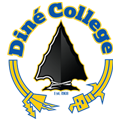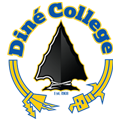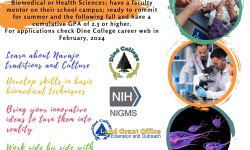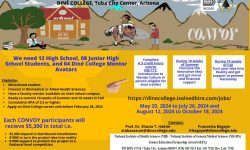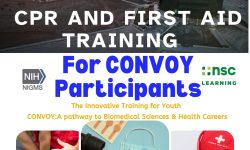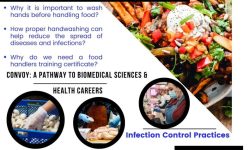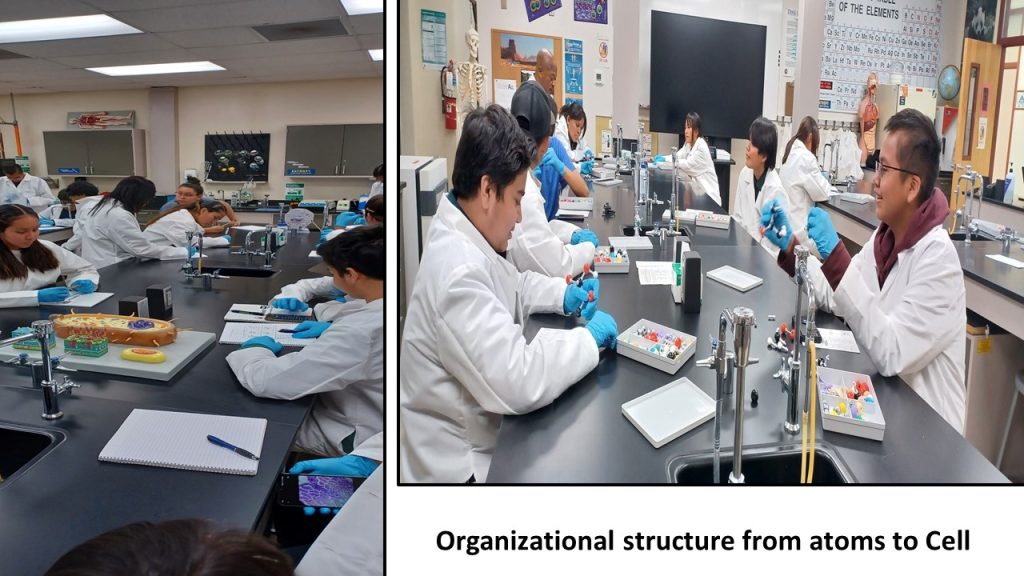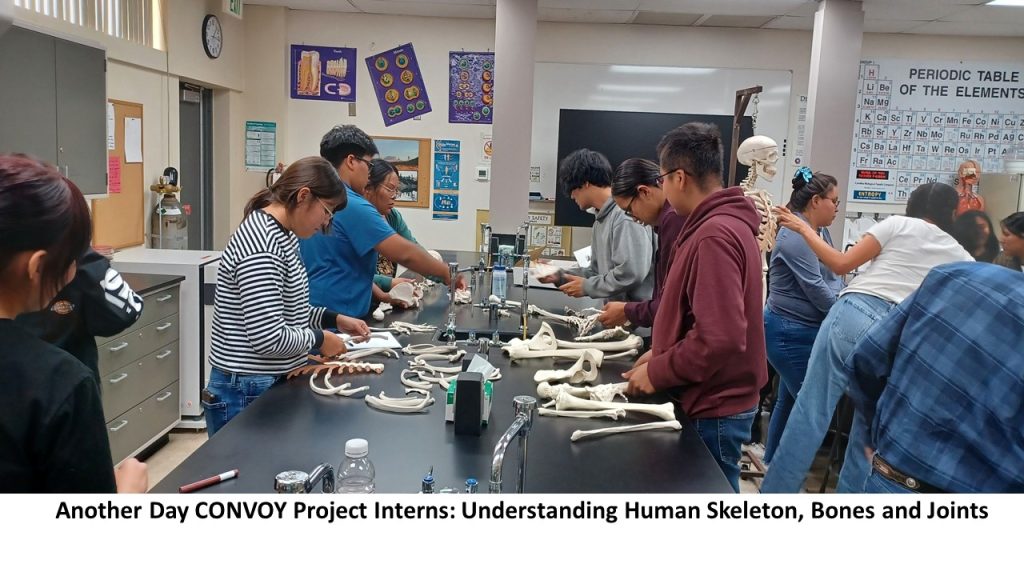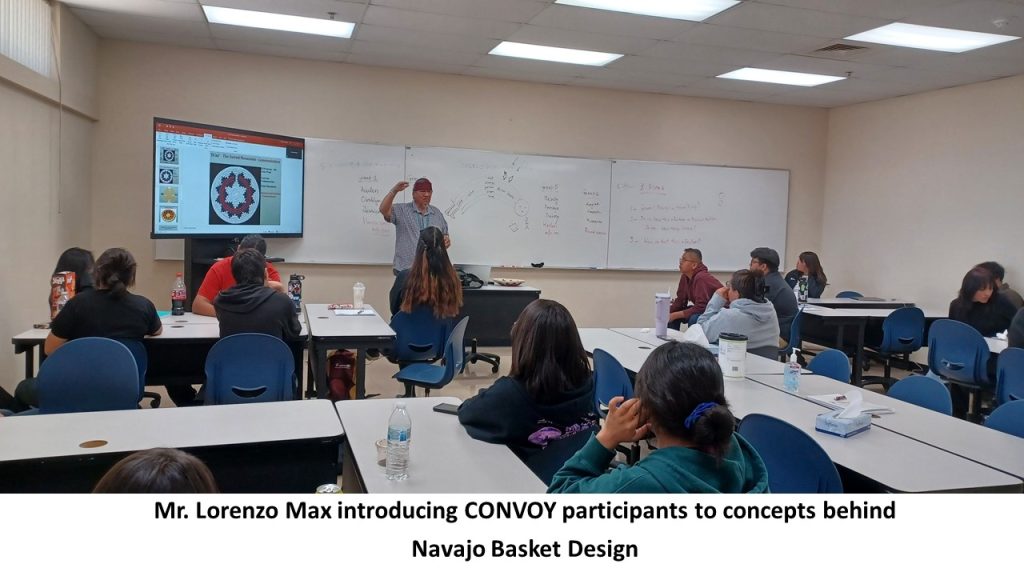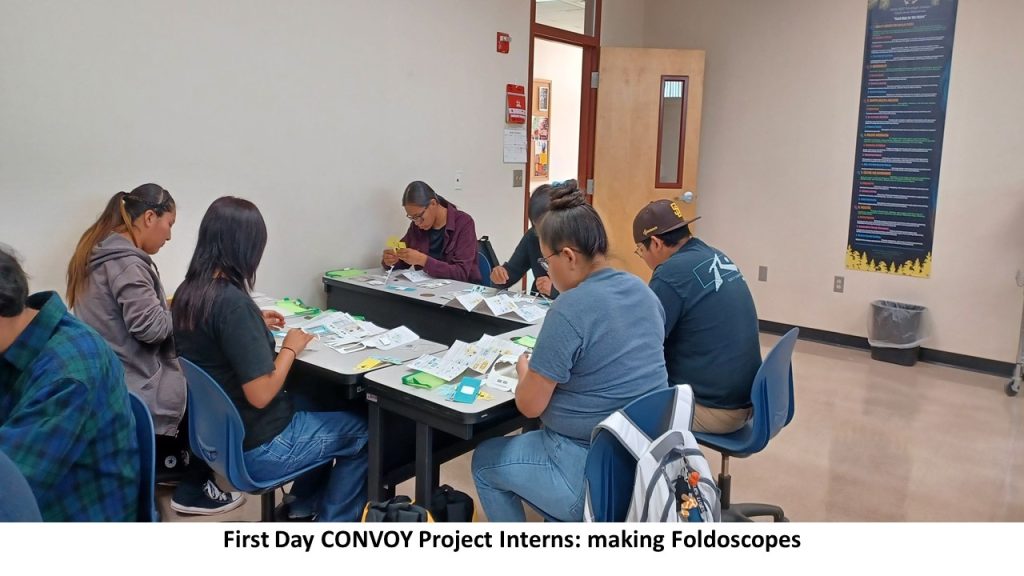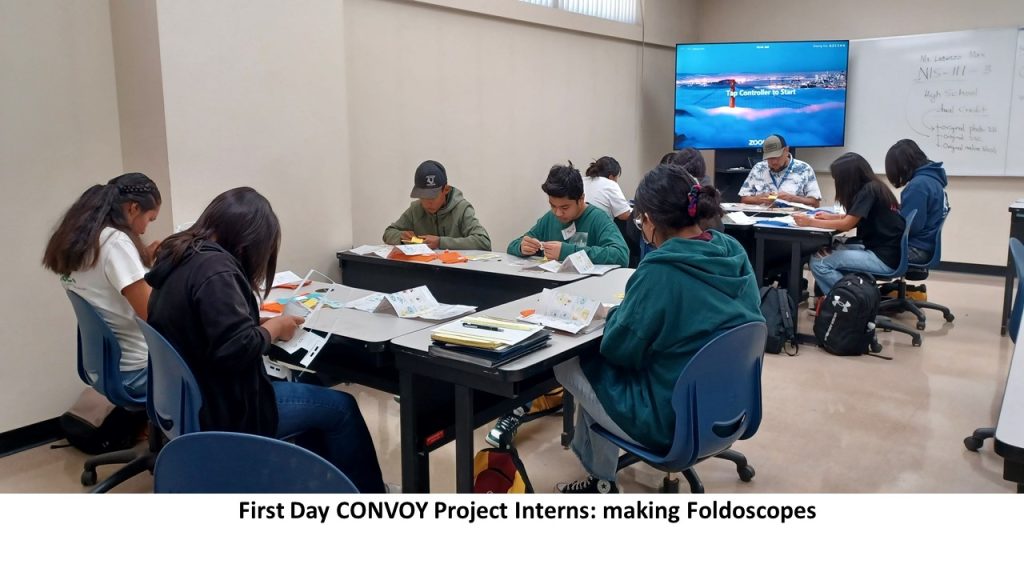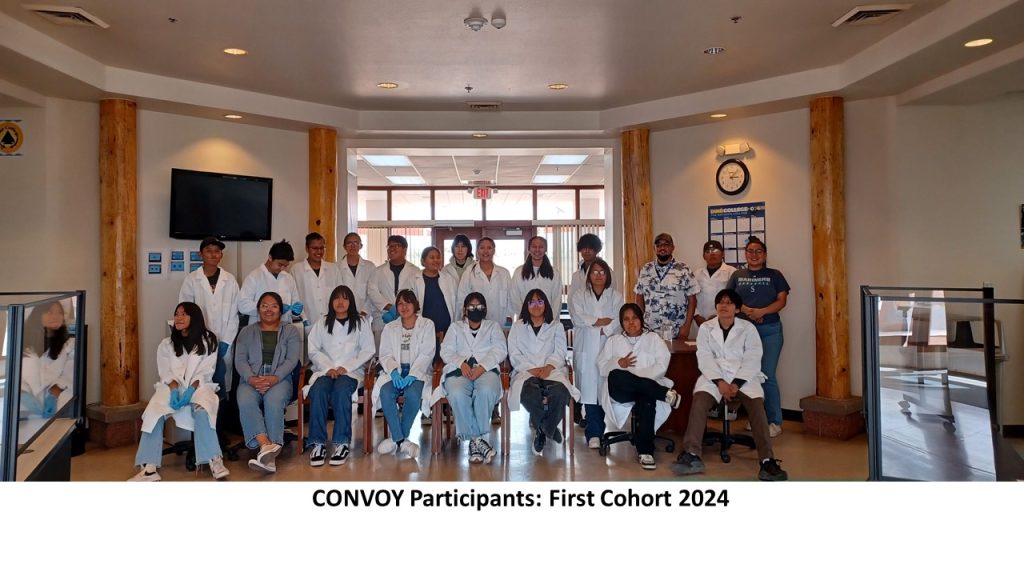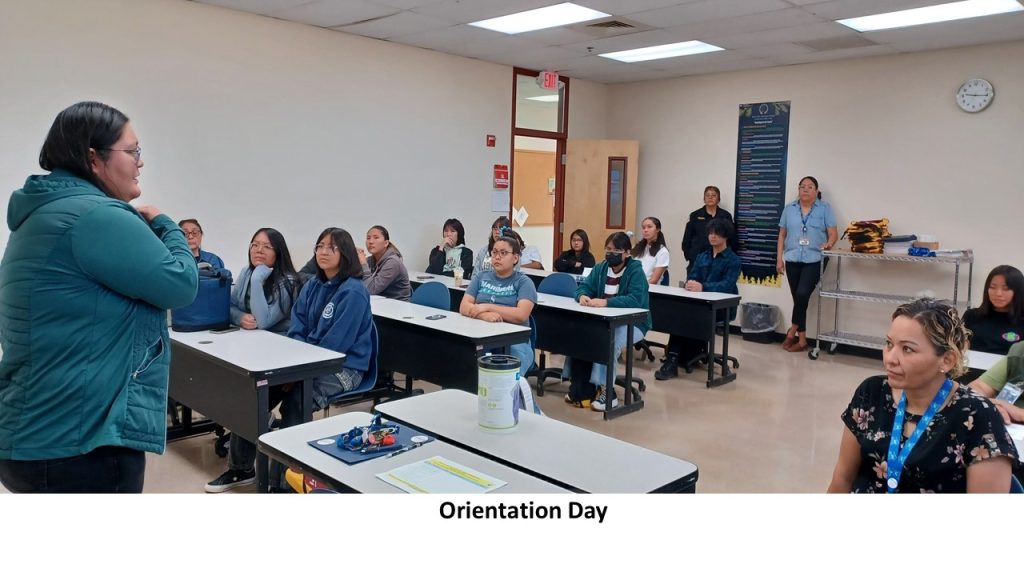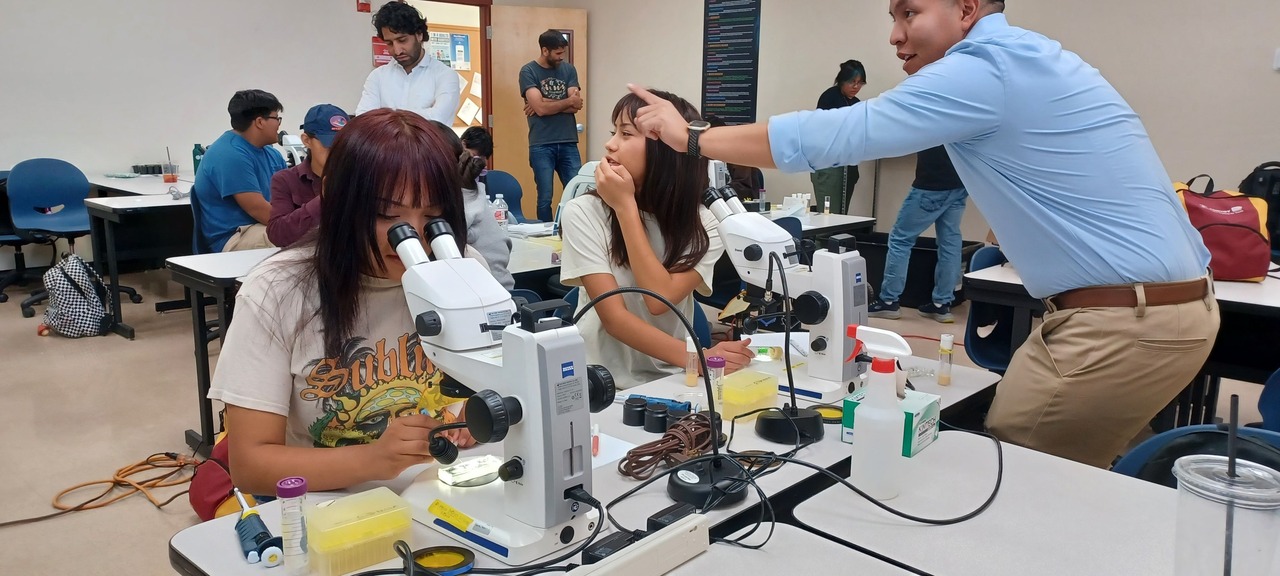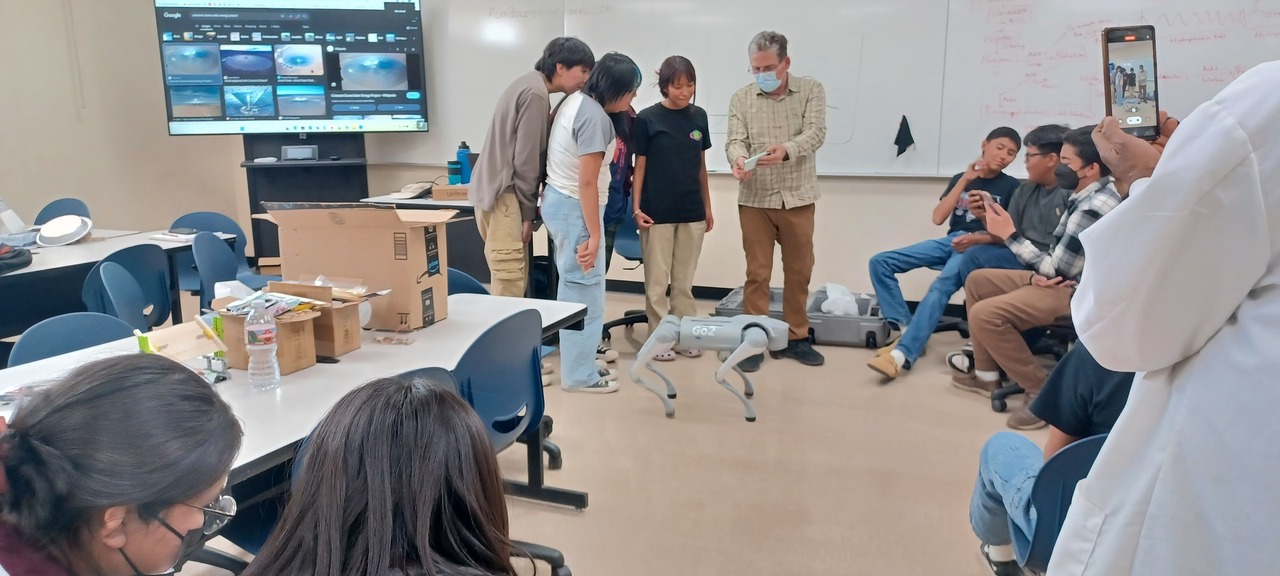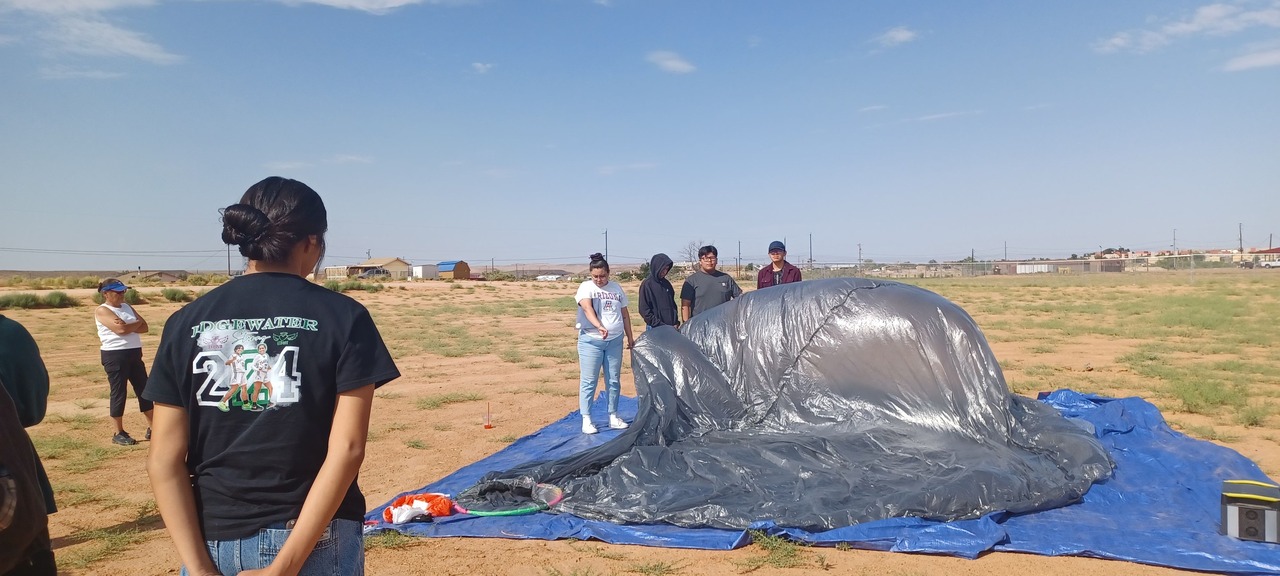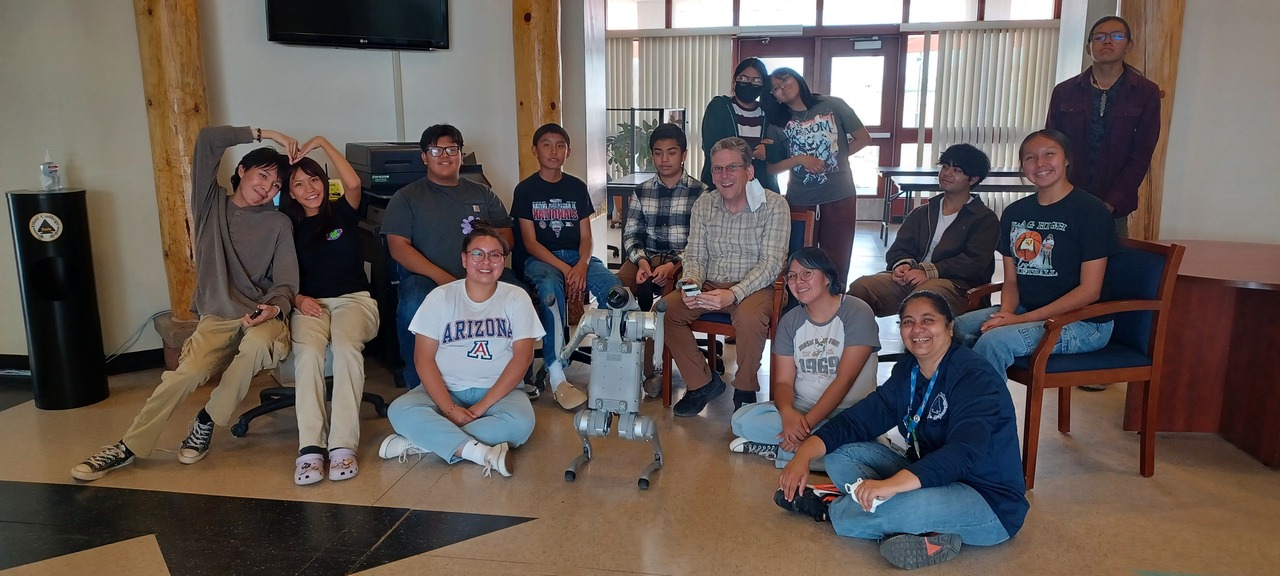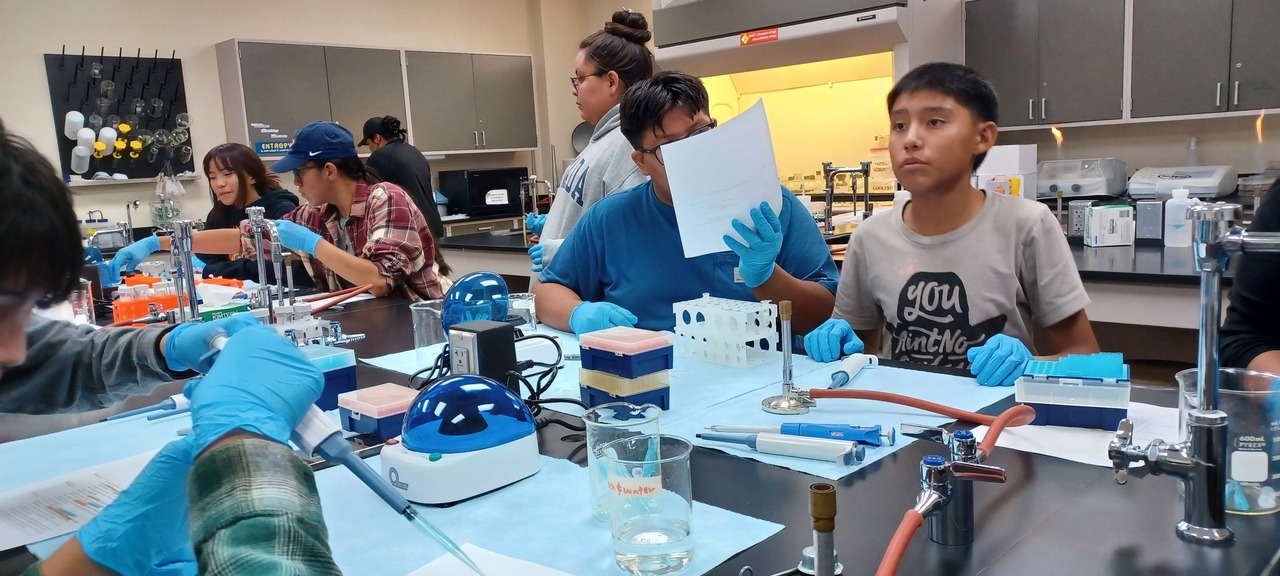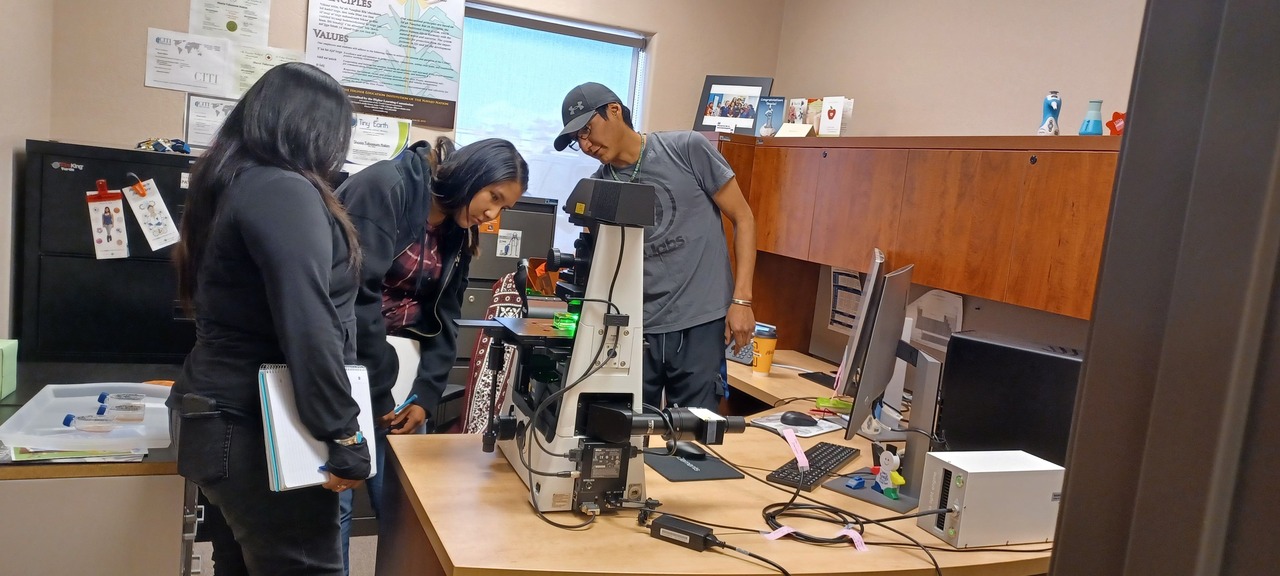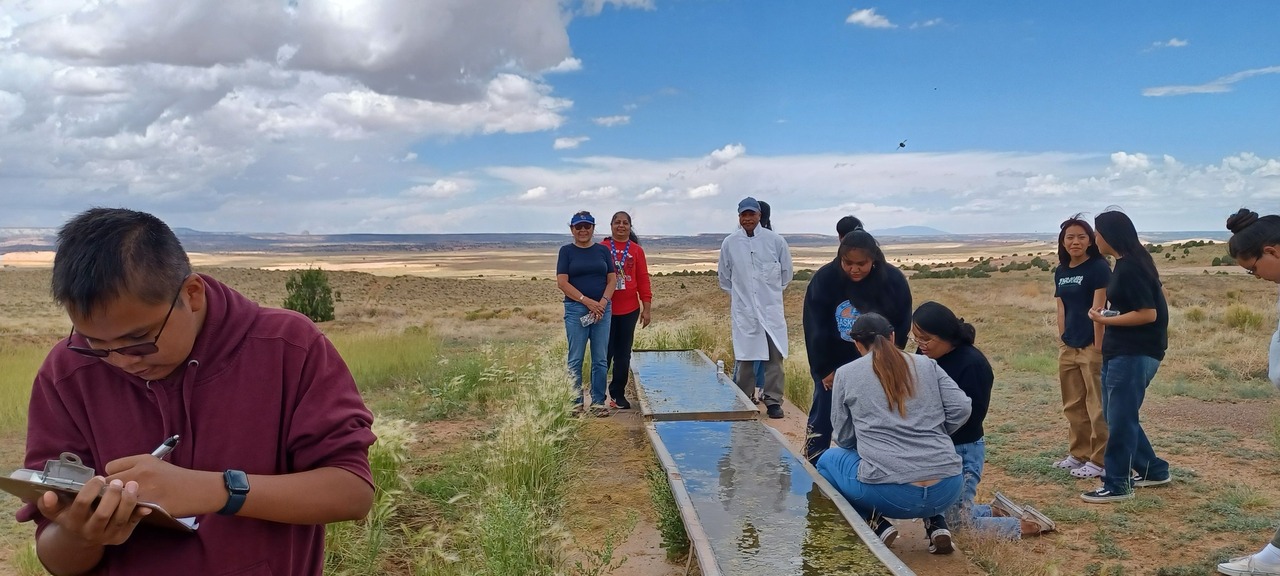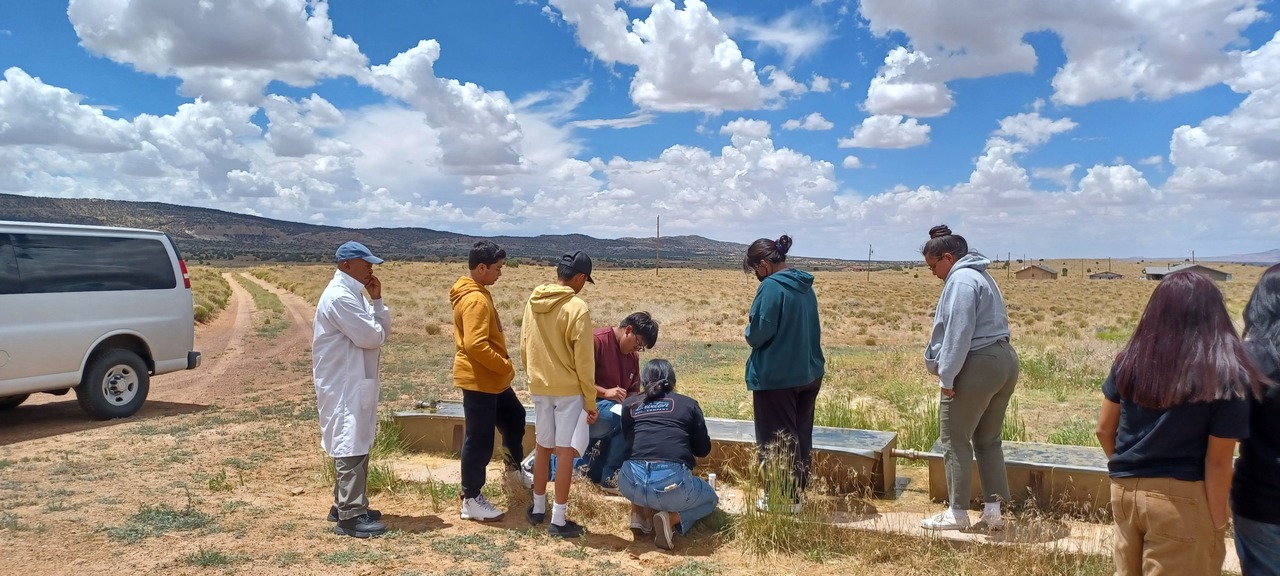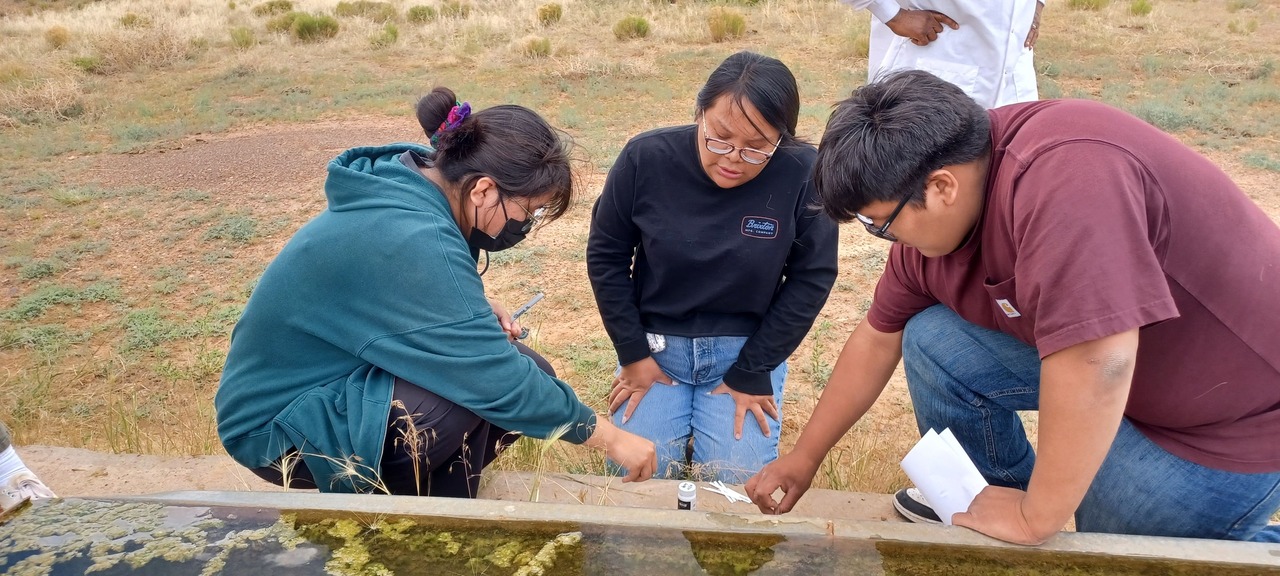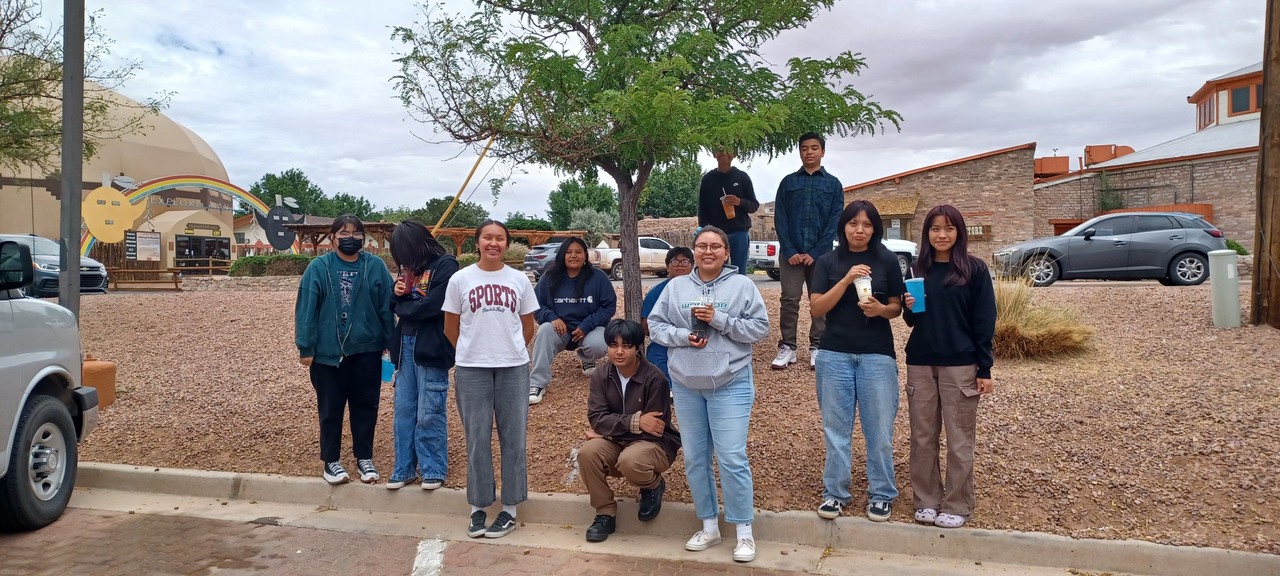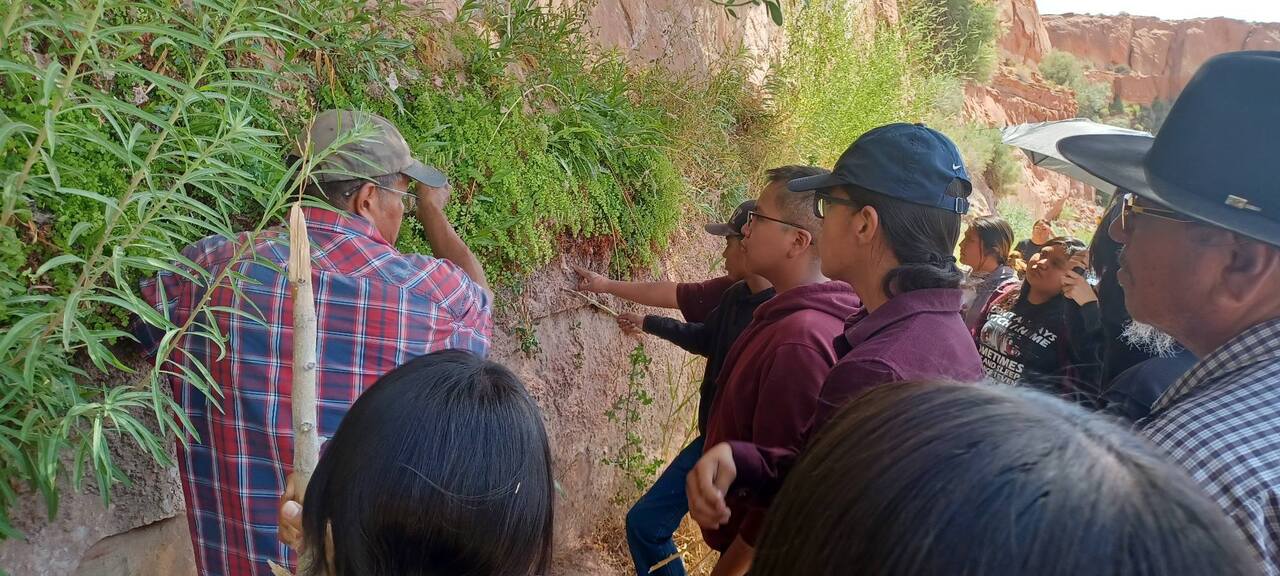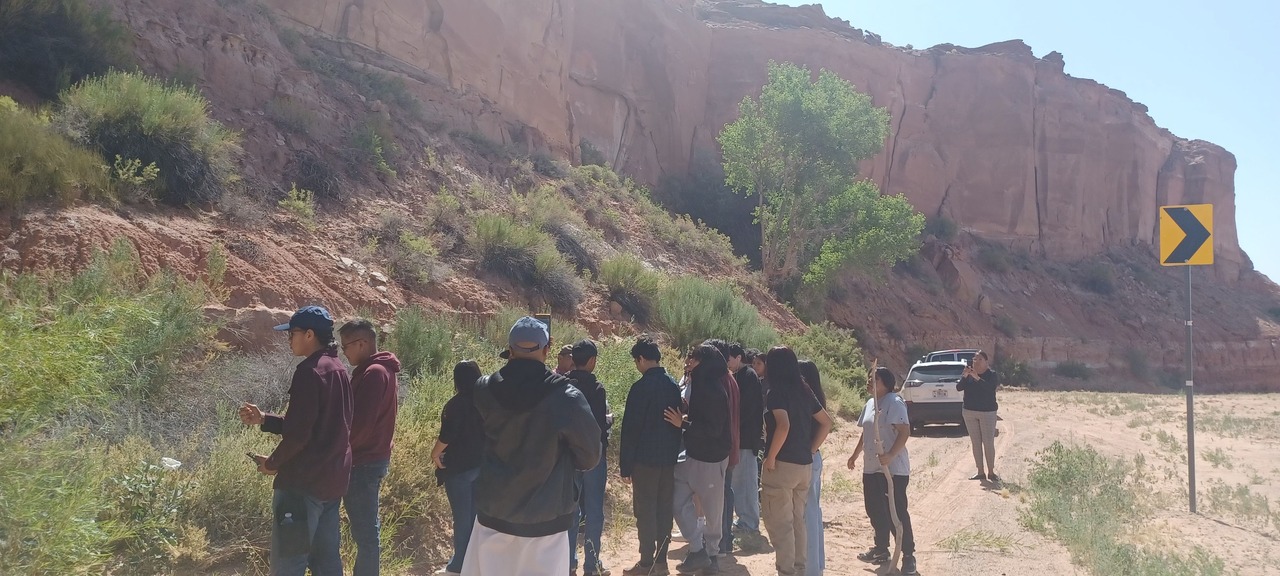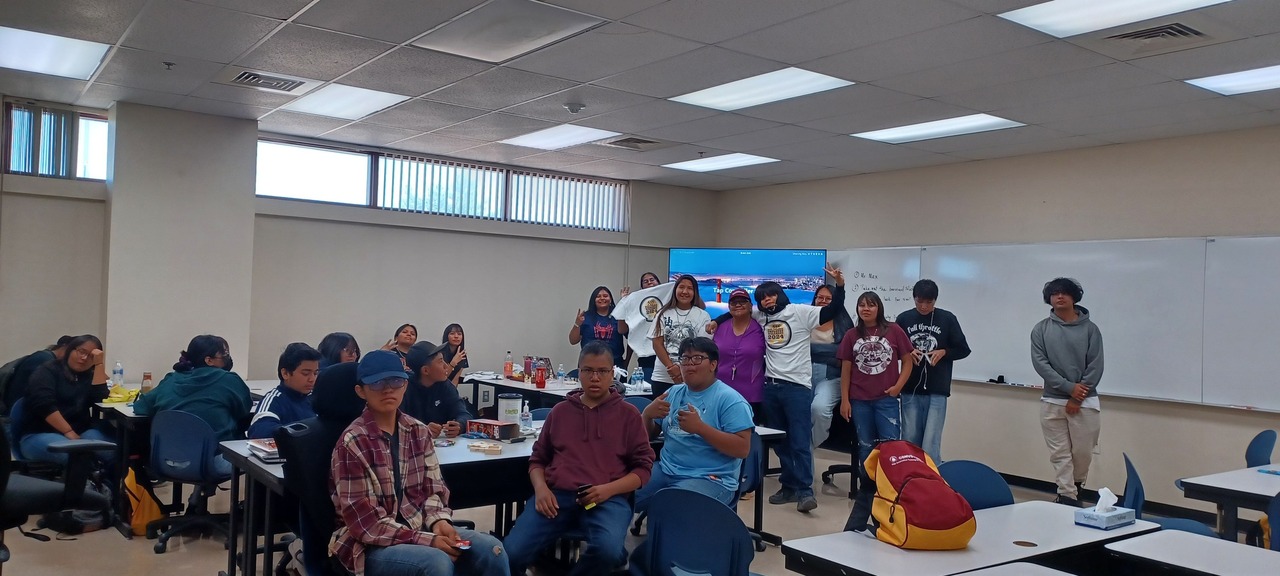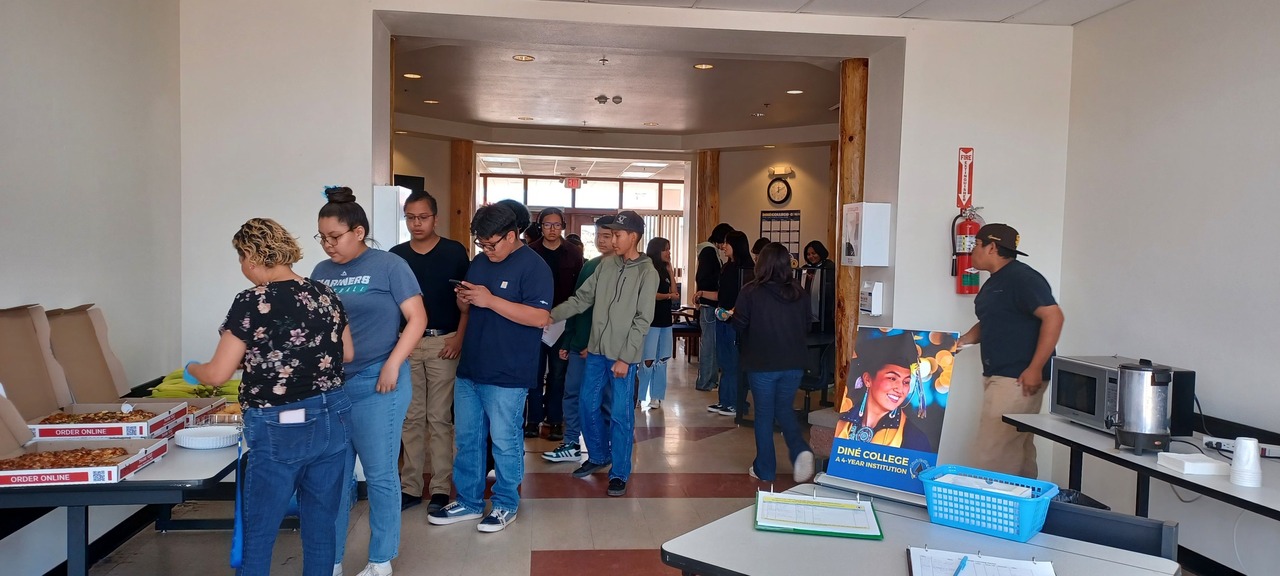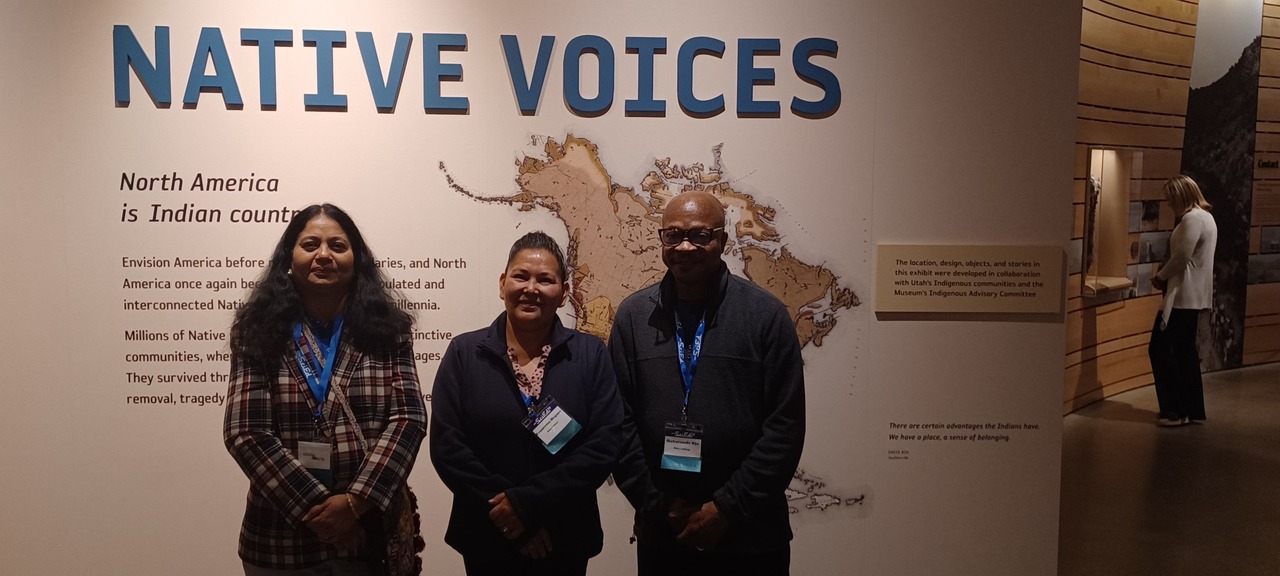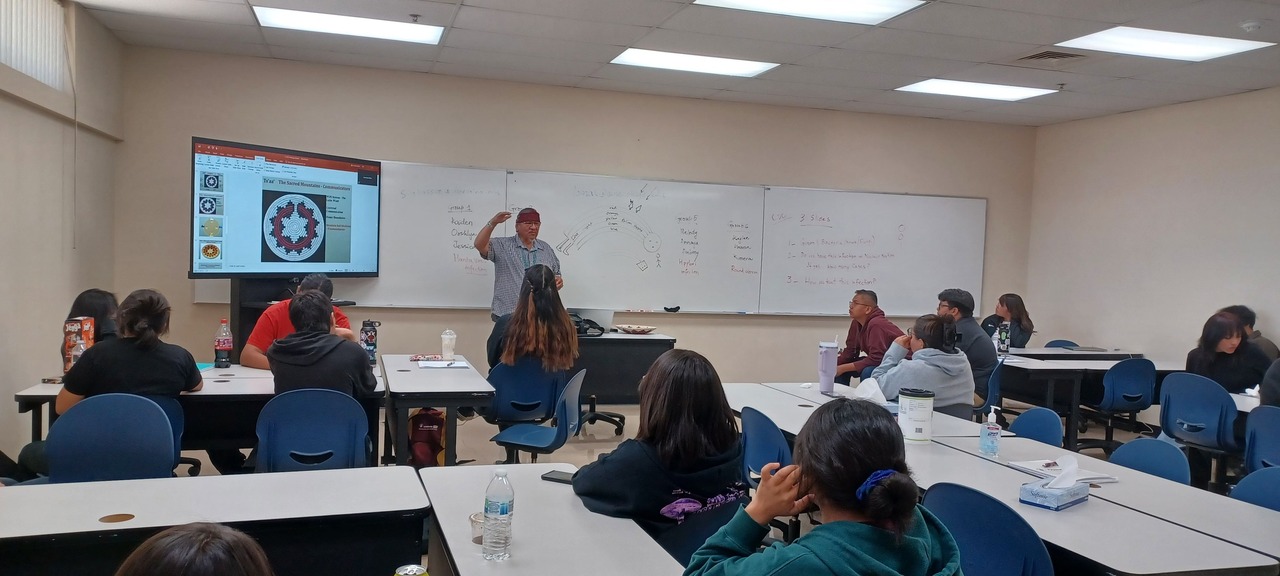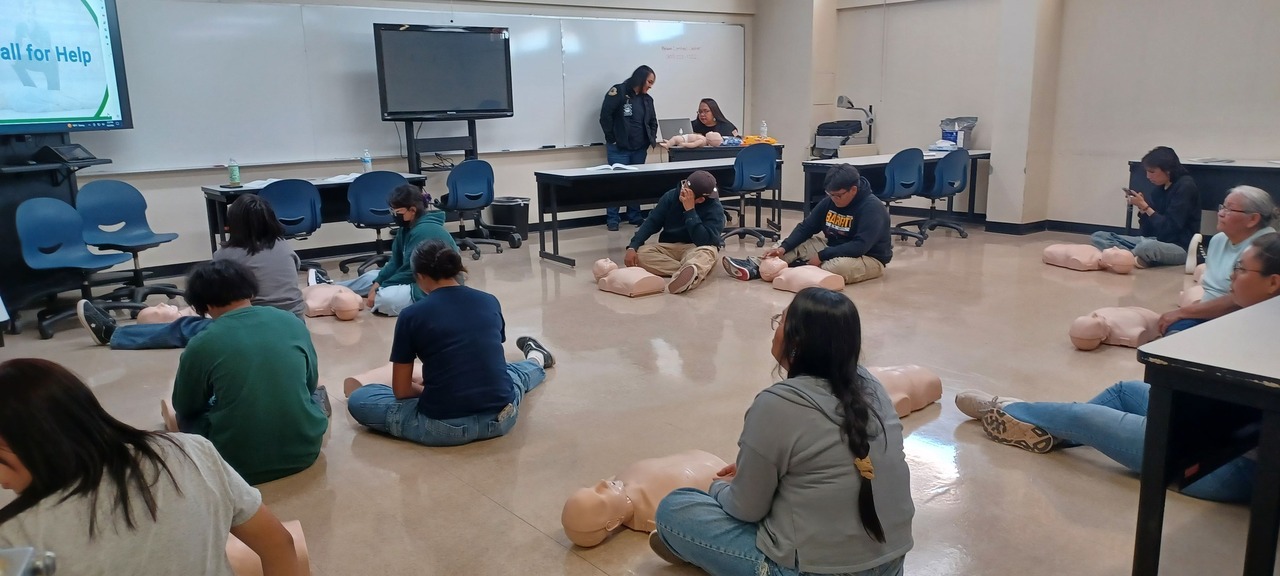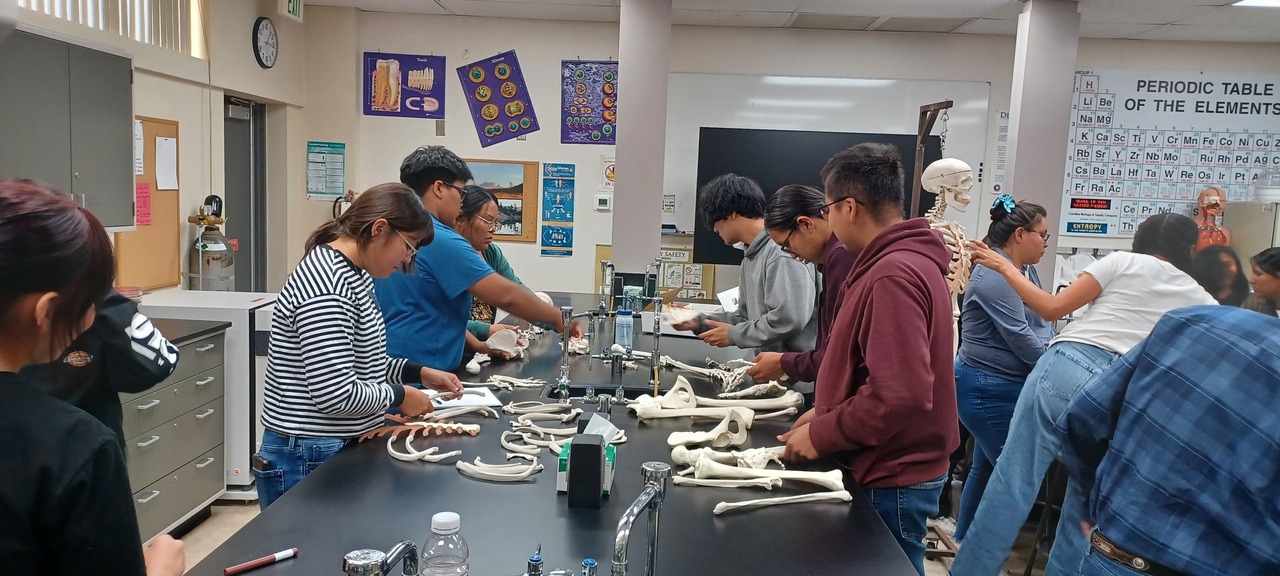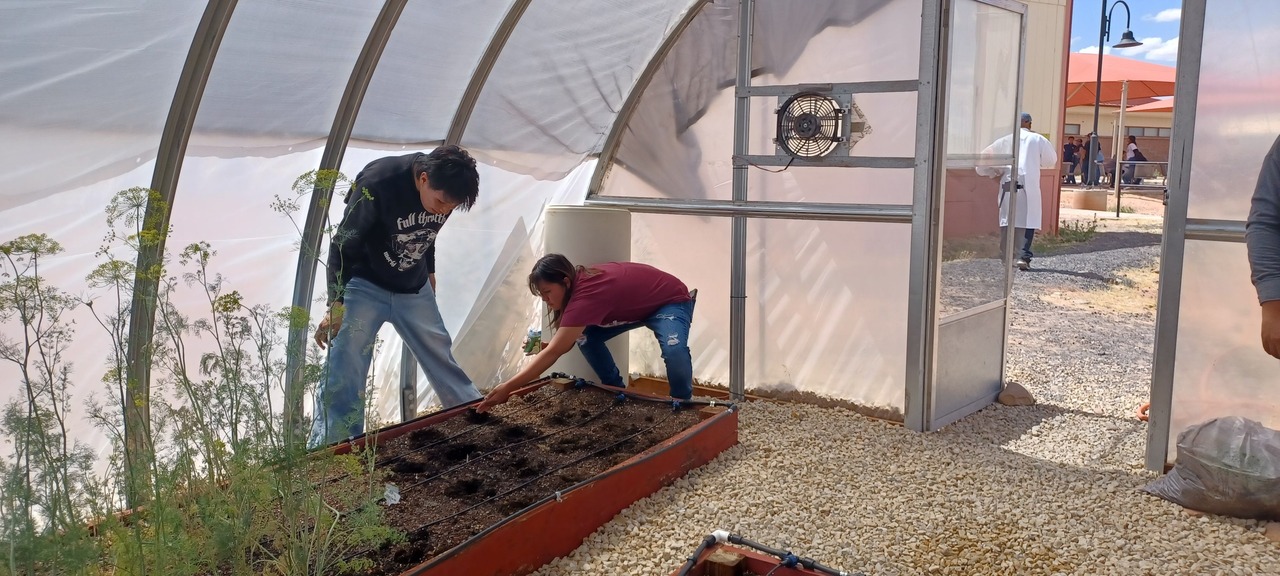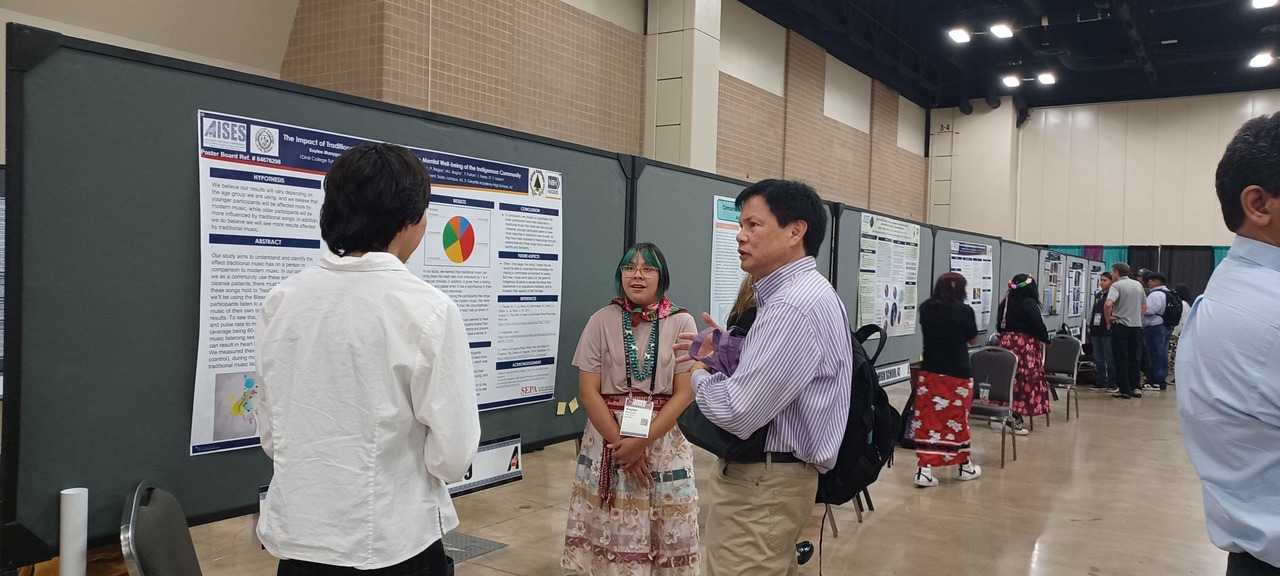CONVOY:
A Cultural Approach of Navajo Youth to Bio-Medical Sciences (2023-2028)
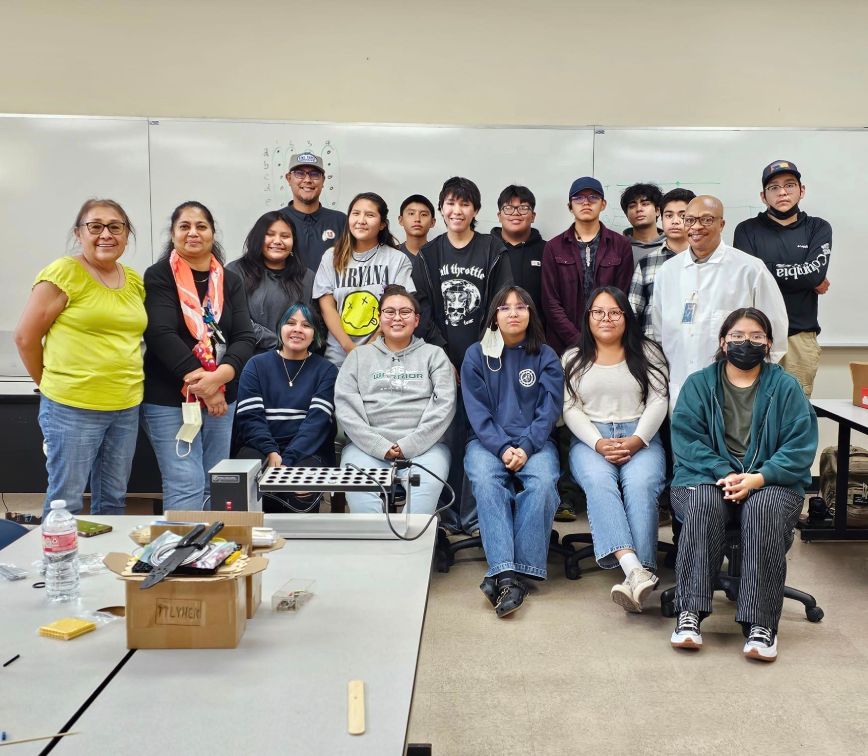
Project Summary
Provide professional research administration and development services and stewardship of external funds to the Diné College research community. The Office of Research will support and enhance the College’s strategic initiatives and the Nation’s priorities with exceptional service.
“STEM Learning Ecosystems are localized multi-stakeholder collaborative networks (MSCNs) that are “dynamic collaborations among schools, out-of-school time programs, STEM expert institutions (eg., museums, science centers, and institutions of higher education), the private sector, community-based organizations, youth and families”, and has been identified as one of the key sources to harvest human capital and contribute to novel interventions through the development of advanced knowledge.
We will create a bridge between traditional indigenous knowledge and modern biomedical science via “CONVOY”. Peer Groups: Numerous peer groups focus on the development of K-12 and undergraduate research and education programs for underserved minority communities, but there are very few who are focusing on healthcare and biomedical sciences. This proposed activity will provide the students with health disparity-related research experiences, hands-on laboratory training, and other educational and communication opportunities via Science Café and Health Fairs to prepare them for future leadership and careers in healthcare, biopharma, and other associated professions.
Proposal: “CONVOY” project will bring together students from Junior high schools, high schools (mentees) and Diné College (mentor avatars) in order to spawn their enduring curiosity in biomedical and health sciences — especially among Navajo (Diné) youth and students from other underserved communities— while adapting the concept of “near-peer” network to bring forward the local health issues to the open forums. Specific Aims: CONVOY, identifies causal links between Indigenous traditional knowledge and modern science to achieve four specific aims i.e.,
1) Motivate Navajo high school and junior high school students to study and pursue careers in Biomedical Sciences and related fields;
2) Nurture holistic practices that bridge the gap between Navajo traditional practices and western medicine to develop a marketable land based solution, while focusing on problems faced by local communities;
3) Prepare students to enroll in institutions of higher learning and provide opportunities to earn college credit in high school through Diné College’s Dual Enrollment Program for biomedical sciences, and 4) Develop curriculum for a 10-week summer program to support activities by “CONVOY”.
Expected Outcome: the benefits of the “CONVOY” will include but are not limited to: i) Development of a need appropriate support system (near-peer-mentorship) that will serve as a main technical support for training and innovative research to help provide better healthcare services, ii) Greater understanding of the local epidemiology of infections, diseases and health disparities, iii) Increase local workforce development in several critical areas that have implications broader than current COVID-19 pandemic or other infections and diseases”.
Our Team
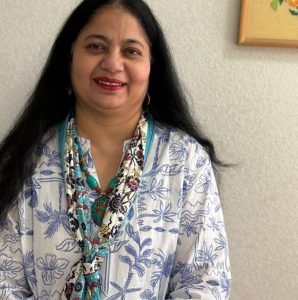
Dr. Shazia Tabassum Hakim
Principal Investigator

Dr. Babatunde Ojo
Co-Principal Investigator
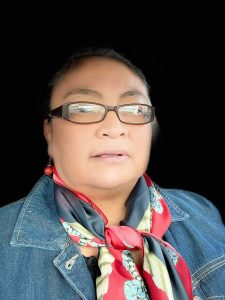
Ms. Benita Litson
Co-Investigator
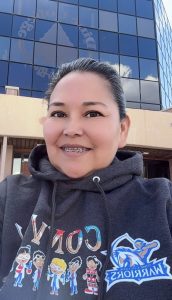
Ms. Francetta Begaye
Co-Investigator
Advisory Board
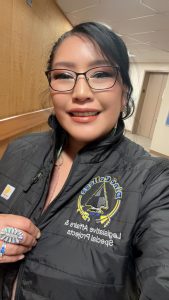
Dr. Crystal Carr Cook (DC)
Ms.Charis Salaby(TCRHCC)
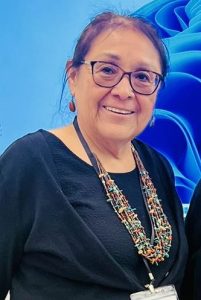
Ms.Phyllis Begay(DC)
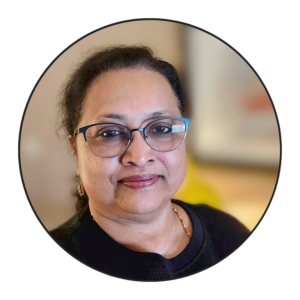
Ms.Reny Matthew(GHAHS)
Ms.Dorothea Litson
Mr.Arnold Clifford
Cohort selected for Summer & Fall of 2025
Coming Soon…
Coming Soon…
Coming Soon…
Coming Soon…
Coming Soon!
Coming Soon!
Coming Soon!
Coming Soon!
- Tori Fulton (Diné College)
- Dizhonia Stanley (Diné College)
- Welthbah Kenton
- Kurtis Gimber
- Wiley Hatathlie
- Yuki Fowler
- Muhammad Talha Tayyab
- Obsidian Benally
- Kaylee Bronston
- Tinaylia Nez
- Marianne G. Begay
- Emharold Begay
- Hailey Russell
- Kiara Dodson
- Matthew Robins
- Kira Fowler
- Joshua Hudson
- Mara Yazzie
- Jacelyn Yellowhair
- Benau Gimber
- Teano Deschine
- Evangelene Dennison
- Dylan Dale
- Ava Begay
- Tori Fulton (Diné College)
- Dizhonia Stanley (Diné College)
- Welthbah Kenton
- Kurtis Gimber
- Wiley Hatathlie
- Yuki Fowler
- Muhammad Talha Tayyab
- Obsidian Benally
- Kaylee Bronston
- Tinaylia Nez
- Marianne G. Begay
- Emharold Begay
- Hailey Russell
- Kiara Dodson
- Matthew Robins
- Kira Fowler
- Joshua Hudson
- Mara Yazzie
- Jacelyn Yellowhair
- Benau Gimber
- Teano Deschine
- Evangelene Dennison
- Dylan Dale
- Ava Begay
Our Collaborators
Name of Current Collaborating Schools is in Power point (Tuba City High School, Tuba City Junior High School, Greyhills Academy High School, Tuba City, Tuba City Boarding School, Pinion High School)
Name of Current Collaborating Institutes are in Agenda (Varman Lab., ASU; Pueblo Science Lab., UNM; Neural Diversity Lab., UNM; Cold Spring Harbor Laboratory DNA Learning Center; UAS Aviation Operations Unit (UAOU), Sandia National Lab, NM; Tuba City Regional Healthcare Corporation; AT Still University)
Project Description
Project Narrative: Because the COVID-19 pandemic has shown the dire need for more healthcare professionals in the Navajo Nation, we will create pathways for high school and junior high school students to pursue Biomedical Sciences, Public Health, Allied healthcare, and related STEM careers. Our entrepreneurial approach builds critical thinking and citizenship capacity (aligned with NGSS) by encouraging students to imagine innovative solutions and providing them with the resources to implement and test their hypotheses. Our strategy also includes the near-peer model which pairs Diné College students (mentors) with high school and junior high students from underserved communities, particularly Navajo Nation to build leadership capacity for college students and create pathways to higher education in Biomedical Sciences/ STEM programs for pre-K-12 students.
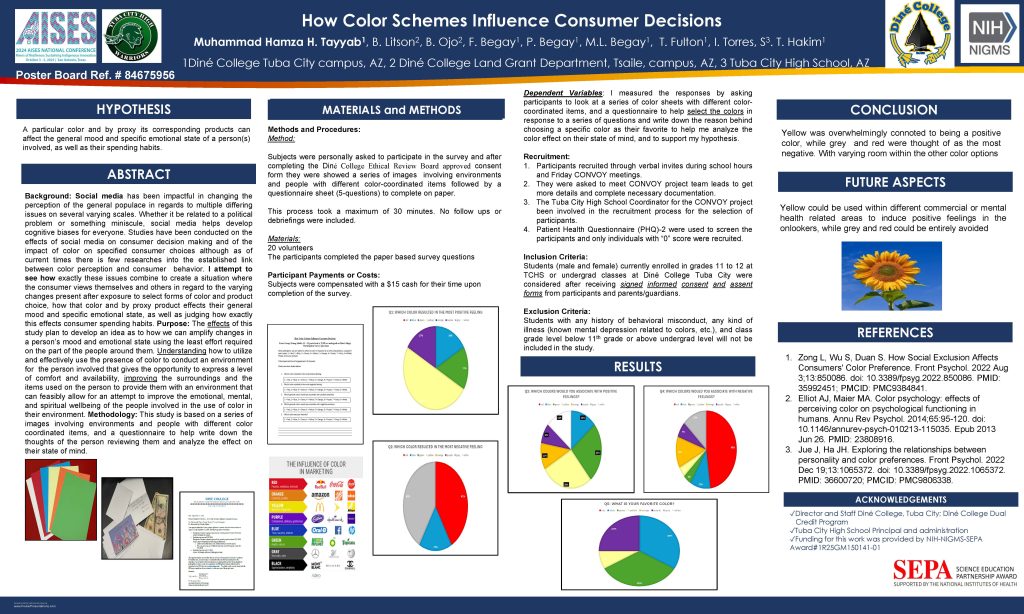
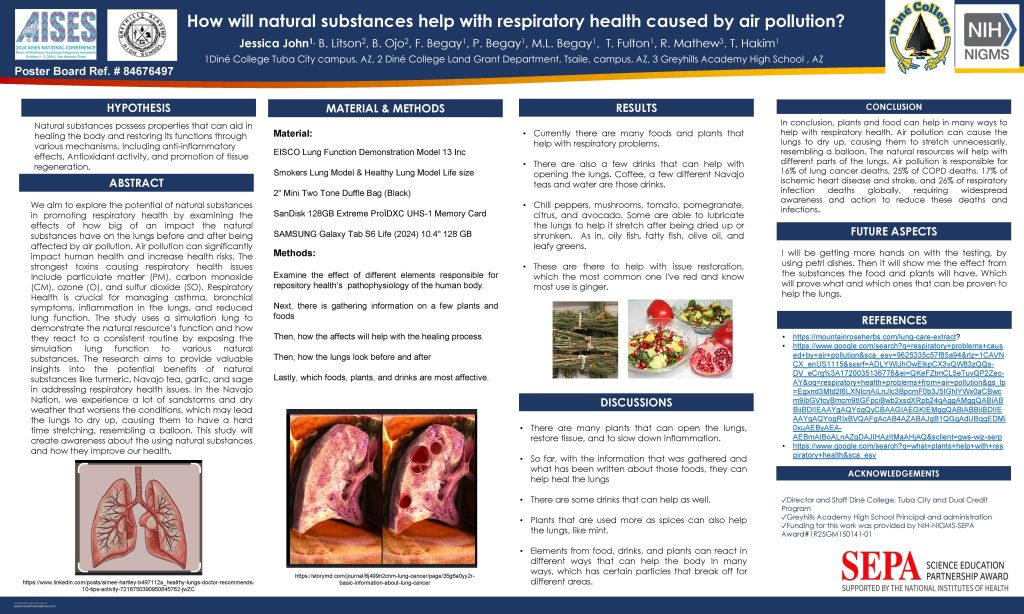
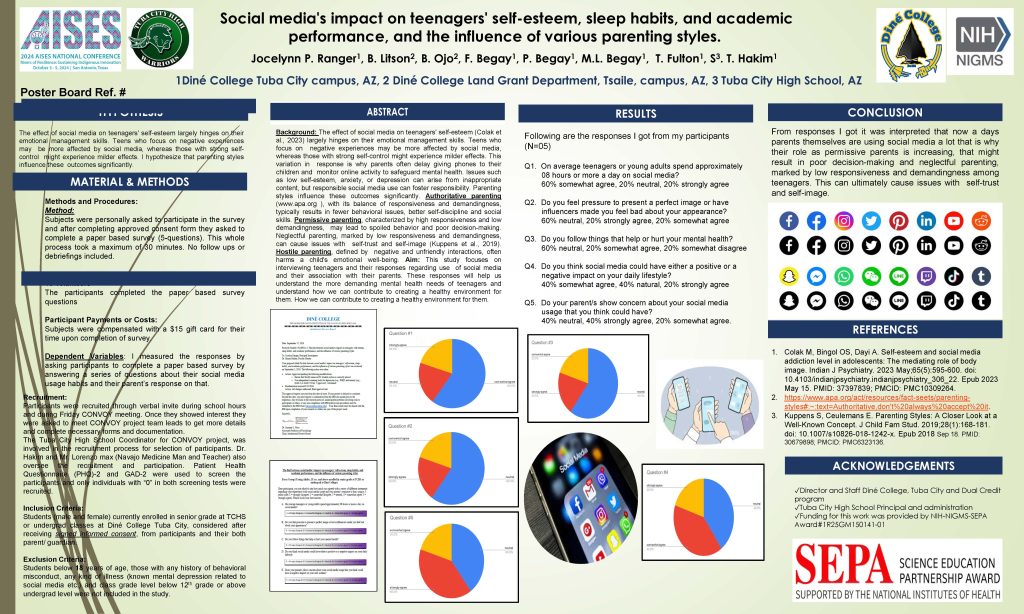
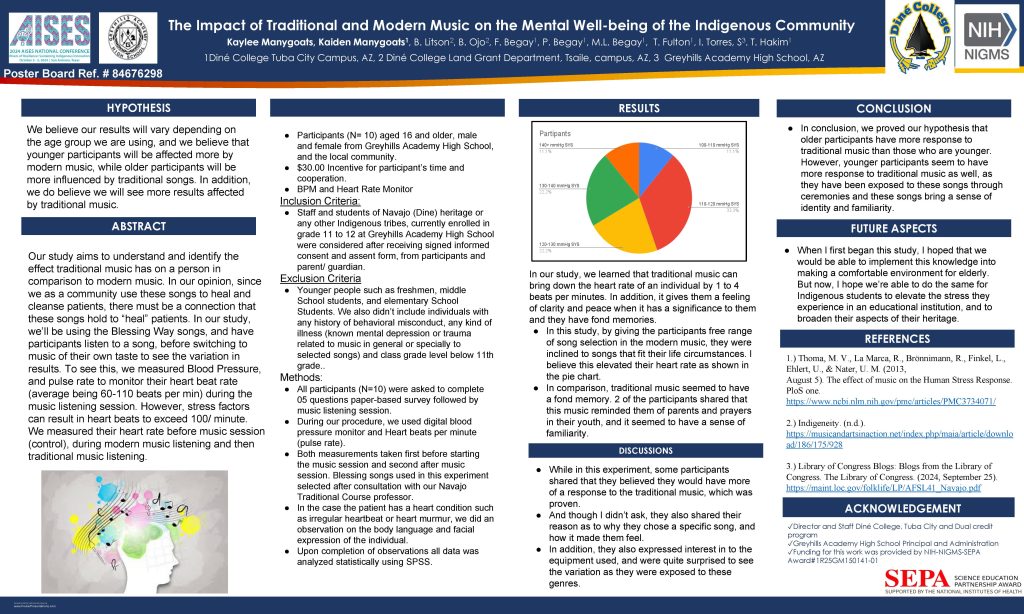
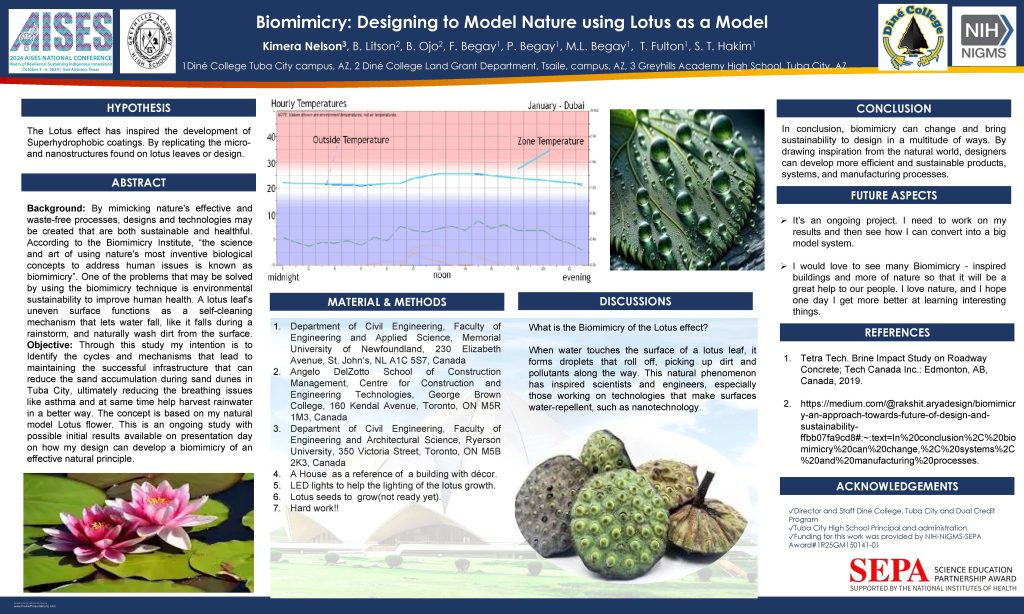
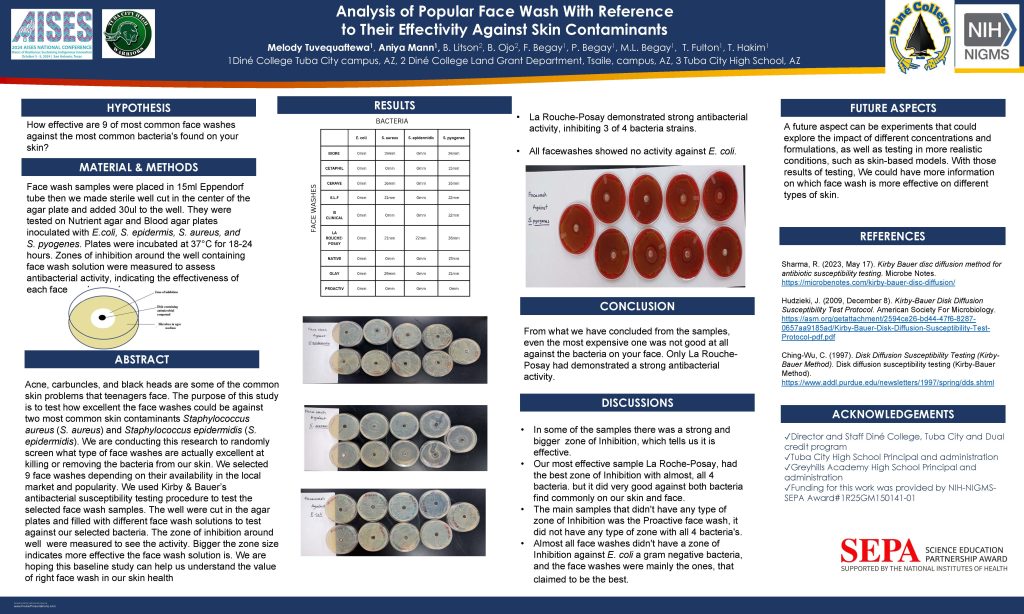

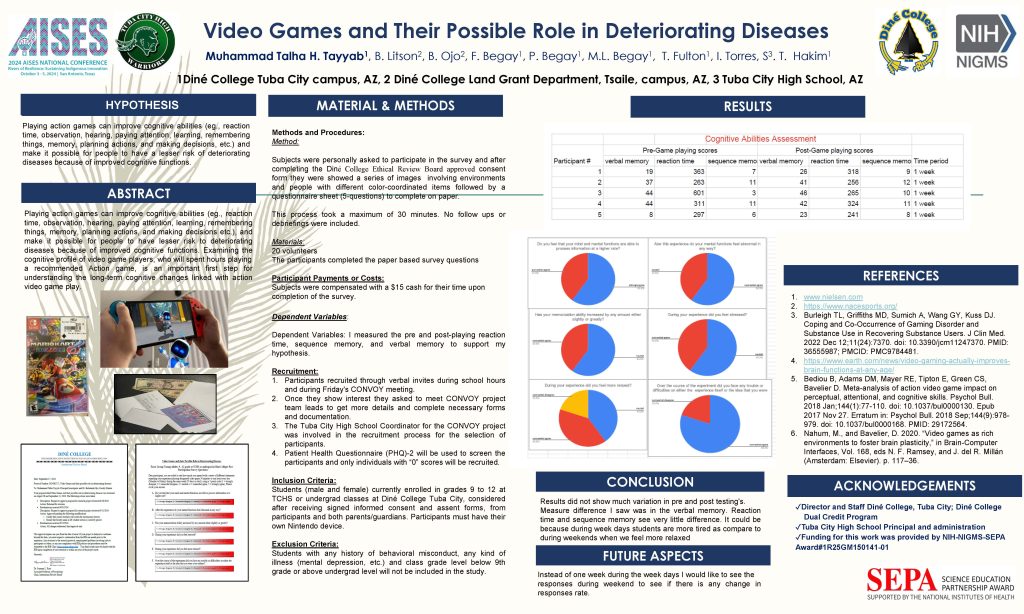

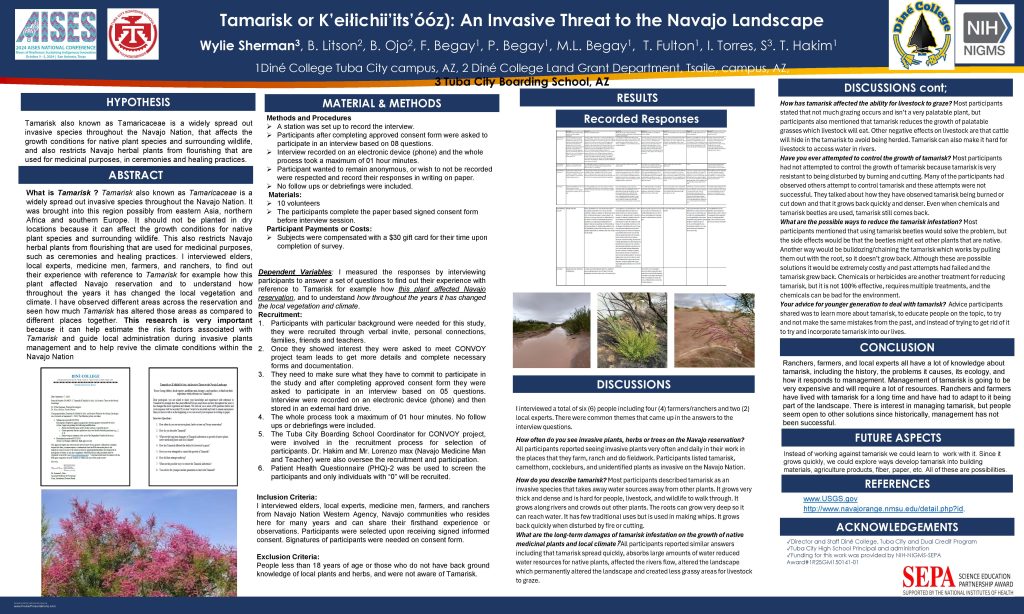
Achievements

Contact Us
Dr. Shazia Tabassum Hakim
Tuba City Professor
(Microbiology/Biomedical Sciences/Anatomy & Physiology)
Diné College, Tuba City, AZ, 86045
stabassum@dinecollege.edu
(928) 283-5113 Ext:7520
